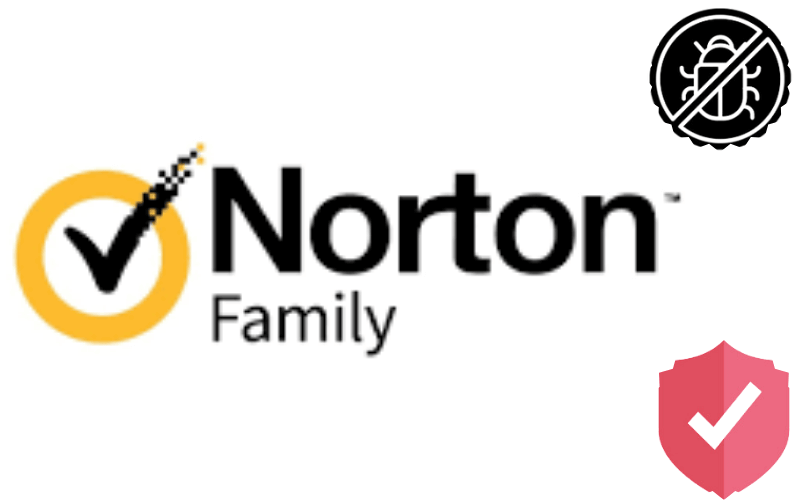Comparing Norton and Avira was an important step for me when choosing an antivirus in Canada. When it comes to selecting antivirus software, I always find myself at a crossroads. Every program promises maximum protection, but whom can you trust, especially when you want to protect both your home and office and ensure the safety of all your devices? In this article, I will share my personal experience of how I chose an antivirus for use in Canada, my comparison of Norton and Avira, and what I ultimately decided. I hope my insights and comparison of Norton and Avira will help you make the right choice.
Table of Contents
Why I Started Looking for an Antivirus

It all started when I bought a new laptop for home use while also working with several devices at the office. I understood that I needed to protect both my personal data and the company’s confidential information, but I also wanted to find something that could protect all my devices. Moreover, my budget was limited, so I was looking for a reliable yet economical solution. My choice came down to two popular options: Norton and Avira. Comparing Norton and Avira was not an easy process, but it was interesting, and I tried to take into account all the pros and cons of both antivirus solutions.
Getting to Know Norton and Avira
The first thing that stands out when choosing antivirus software is the number of features it offers. Norton and Avira are two long-standing competitors in the cybersecurity market, and honestly, they both have a good reputation. My task was to figure out which program would best suit my needs. Comparing Norton and Avira involved evaluating aspects such as protection, cost, system performance impact, and ease of use.
Norton: Pros and Cons

Let’s start with Norton. Norton has always been regarded as one of the leading antivirus solutions, and I have heard many positive reviews about its features. Here is what I liked:
- Comprehensive Protection: Norton offers comprehensive protection against viruses, malware, and phishing. This was especially important for me since I often work with emails that could be potentially dangerous.
- Multi-Device Protection: Norton allows you to protect multiple devices at once, which was important for me since we have several laptops and smartphones in the family.
- Password Manager: The built-in password manager is a great bonus that makes life easier, especially if you have multiple accounts.
However, there are also cons that bothered me:
- Cost: Norton turned out to be quite expensive, especially if you take a yearly subscription for multiple devices. This was one of the downsides in comparing Norton and Avira since cost plays a significant role when choosing antivirus software.
- Resource Intensive: During my testing, I noticed that Norton places a heavy load on the system, especially during a full scan. My home laptop, which isn’t very powerful, started to noticeably slow down. This was another significant factor that I considered when comparing Norton and Avira.
Avira: Pros and Cons
Now, let’s move on to Avira. Avira is an antivirus that I had heard of for a long time, and I was curious to find out if it could really compete with giants like Norton. Comparing Norton and Avira also involved testing Avira’s capabilities.
- Free Version: Avira offers a free version with basic protection features, which is a huge plus for those looking to save money. Of course, I considered the paid version, but having free basic protection adds confidence in the company.
- System Optimization: Avira includes system optimization tools that help speed up the device, which was a nice bonus.
- Low System Load: Unlike Norton, Avira barely slowed down my computer. This was especially relevant for the office, where older computers are still actively used. Comparing Norton and Avira showed that Avira significantly outperforms Norton in terms of low system load.
As for cons:
- Limited Functionality in Free Version: While the free version provides basic protection, full protection requires purchasing the Pro version, which negates the advantage of saving money. This was also an important point in comparing Norton and Avira.
- Fewer Privacy Protection Features: Compared to Norton, Avira has fewer tools for online privacy and data protection. This was another factor I considered in my comparison of Norton and Avira.
My Choice: Built-In Antivirus?
After much thought and testing both antivirus solutions, I decided to take a look at the built-in protection options offered on my devices. To my surprise, the built-in Windows antivirus, Windows Defender, turned out to be quite functional and easy to use.
Here’s why I chose the built-in antivirus:
- Free of Charge: Windows Defender is already built into the system, and you don’t have to pay extra for it. In a limited budget situation, this was a huge plus.
- Ease of Use: It runs in the background without requiring much intervention, and its functionality was advanced enough to protect my devices from most threats.
- No System Load: Defender barely loads the system, allowing you to work without lags, especially on older office computers. Comparing Norton and Avira to Windows Defender showed that Defender wins in terms of performance.
Norton vs Avira Comparison: Key Factors in My Choice
Now that I have considered all three options—Norton, Avira, and the built-in antivirus—I want to share the key factors that convinced me the most in my choice:
Comparison of Norton and Avira
| Feature | Norton | Avira |
|---|---|---|
| Virus and Malware Protection | High level of protection, constant database updates | Effective protection, focused on minimizing system impact |
| Firewall | Advanced built-in firewall | No built-in firewall, but can work with Windows Firewall |
| VPN | Included in the subscription, with unlimited traffic | Included, but with traffic limits in the free version |
| Privacy Protection | Password manager, Dark Web monitoring | Password manager, browser tracking blocker |
| System Performance | May use more resources, especially during full system scans | Optimized for minimal impact on performance |
| Compatibility | Windows, macOS, Android, iOS | Windows, macOS, Android, iOS |
| Price | Higher average price, but includes many additional features | Affordable plans, free version with basic features |
- Price: Norton was too expensive for my budget. Avira was more affordable, but to get full protection, I would need to switch to the paid version. The built-in antivirus turned out to be the best option in terms of price-to-quality ratio. Comparing Norton and Avira, Avira was cheaper, but the built-in antivirus was the most cost-effective.
- Ease of Use: The built-in antivirus doesn’t require installation or complex setup, which was important, especially for home use. Norton, with its many settings, sometimes confused me, especially when I had to adjust settings for different devices. In comparing Norton and Avira, the built-in Defender was the simplest.
- System Performance: Norton slowed down my computer, whereas Avira and Windows Defender worked almost unnoticed. This was a decisive factor for choosing an antivirus for the office, where it is important to maintain high performance. Comparing Norton and Avira showed that Avira was less demanding, but Windows Defender was even more optimal.
What to Choose?
If you are looking for an antivirus for home use and are willing to pay for premium features, Norton is a good choice as it provides maximum protection and has many additional features such as a VPN and password manager. However, its cost and impact on performance could be significant drawbacks.
Avira is a great option if you need good protection but don’t want to spend a lot. The ability to use a free version and system optimization are significant advantages. However, for complete protection and ease of use, you may need a paid subscription. Comparing Norton and Avira shows that Avira is a more affordable option with a good set of features.
Windows Defender, in my opinion, turned out to be the best choice for my situation. It is free, unobtrusive, and provides an adequate level of protection for both home and office use. Of course, if your activities involve high risks and data confidentiality, you may want to consider more advanced solutions.
Conclusion: Norton vs Avira Comparison

Choosing antivirus software is a personal matter and depends on your needs and budget. In my case, I decided to trust Microsoft’s built-in protection, and so far, this choice has proven itself. Comparing Norton and Avira helped me understand that each of them has its advantages and disadvantages. If your priority is maximum protection, prepare your budget for Norton. If saving money while maintaining acceptable protection is important, Avira is your choice. And if you, like me, are looking for the best price-to-quality ratio, it is quite possible that the built-in antivirus will suit you.
I hope my comparison of Norton and Avira will help you make your decision. It is important to remember that online security starts with caution and common sense. Antivirus software is just one of the tools, but the most important thing is your awareness of potential threats.





